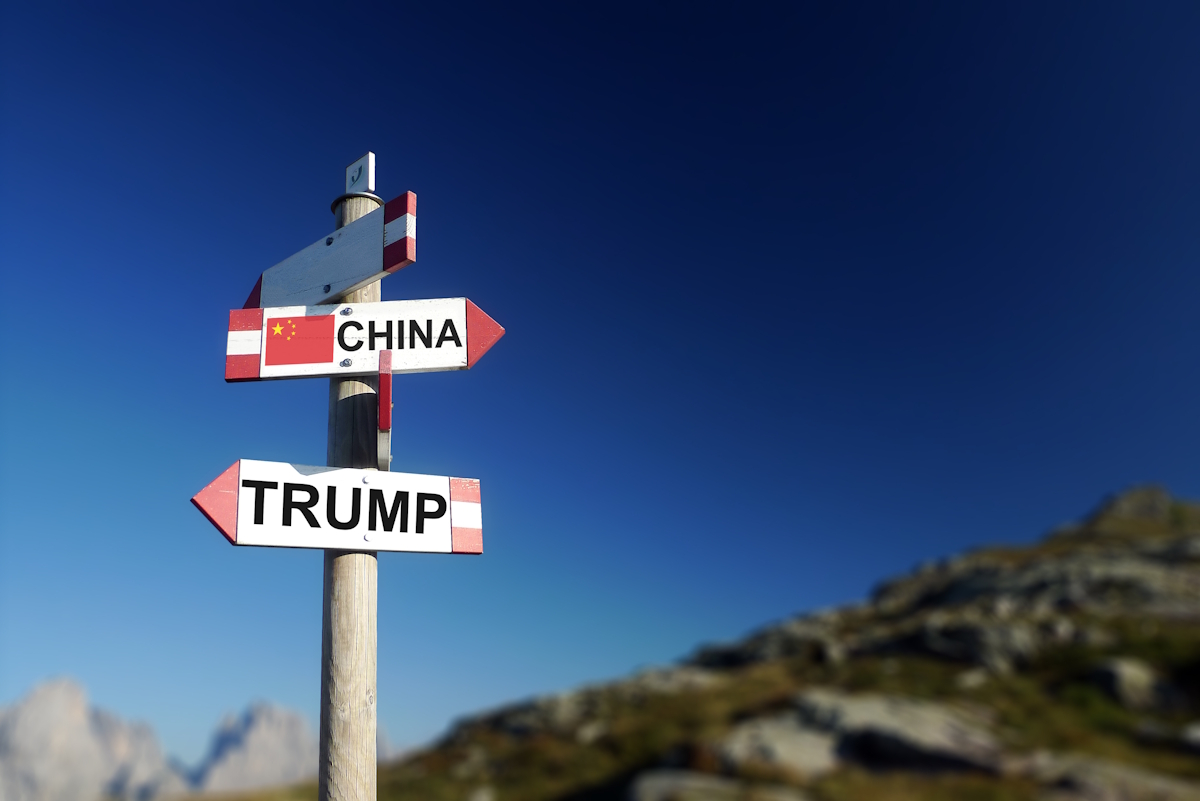Following Donald Trump’s victory in the 2024 US presidential election, asset managers are cautious as they assess the potential implications for Asia and Asian investments. With Trump back in the White House and the Republicans regaining control of the Senate and, most likely also, the House of Representatives*, markets had already started to price in the impacts of a Republican sweep.
This outcome could allow Trump to implement his policy proposals with greater freedom. Market observers expect larger fiscal deficits, increased inflation, and corporate tax cuts in the US.
As a result, this could pose challenges for Emerging Markets (EM), where heightened trade tensions and a stronger US dollar may dampen growth prospects. Additionally, anticipated tariff hikes and expansive fiscal policies—which may drive inflation—could limit the potential for interest rate cuts.
Craig Bell, Head of Multi-Asset Portfolio Solutions at Eastspring Investments, notes that the Trump-led administration would likely focus on increasing tariffs, emphasising China and Mexico, while potentially scrutinising other countries in Asia Ex-Japan. Besides the direct impacts of price rises and shifts in supply chains, investors might also pay attention to currency movements, particularly if the Chinese RMB faces devaluation pressures.
Bell’s colleague, Jingjing Weng, Head of Research at Eastspring Shanghai, suggests that the potential for new US tariffs could weigh more heavily on China’s economy than in 2018-19. Back then, GDP growth was around 6.95%, but today, China faces weak consumer confidence, persistent deflation, and a struggling property market, making the 2024 growth target of 5% appear challenging. Weng pointed out that China’s reliance on exports has increased significantly, with net exports contributing over 20% to GDP growth as of September 2024. However, China has shifted its export focus to developing countries and expanded in sectors like autos, batteries, and solar equipment. Furthermore, the country’s share of US imports has dropped from over 21% in 2018 to below 14% as of August 2024.
Barclay’s Securities Japan estimates the damage from Trump’s tariff policies to be 2% of real gross domestic product in China. “There’s also a risk that they could weigh down Japan’s real GDP by 0.3% as demand for Japanese products and services weakens,” said Naohiko Baba at Barclays Securities Japan.
According to Japanese Mizuho Research & Technologies, Japanese companies in the US source 50% of their procurement from overseas, making them susceptible to the adverse impacts of tariff increases.
Trump win: “Complex scenario for global markets”
However, Asia might also have beneficiaries in the face of escalating trade tensions between China and the US. Moody’s Ratings said India and ASEAN countries could benefit from seeing more trade and investment inflows.
India has a minimal trade balance with the US and a strong production base with production-linked incentive programs. The Association of Southeast Asian Nations (ASEAN) was already a beneficiary from Trump’s first term when supply chains shifted away from China.
Pinebrige Investments also sees Taiwan benefitting. “Potential tariffs on Chinese semiconductors could prompt international clients to shift to Taiwan to avoid higher costs, benefiting Taiwanese foundries,” said Hani Redha, Portfolio Manager, Global Multi-Asset, at Pinebridge. “Additionally, the overcapacity in mature nodes resulting from China’s aggressive expansion could be alleviated, improving prices and utilisation for global foundries. However, Taiwanese designers and foundries that use advanced Chinese chip lines might face increased scrutiny from the US.”
“Overall, the Trump reelection presents a complex scenario for global markets, particularly in Asia. Global trade would see a negative effect overall, with China feeling the biggest impact,” opined Redha.
What does Trump 2.0 mean for Asia equities and fixed income?
Devan Kaloo, Global Head of Equities at abrdn, pointed out that a world of rising tariffs is not great for emerging markets. Still, a stronger US economy is supportive of many companies and countries.
“There are several long-term structural tailwinds that underpin EM attractiveness; these include a pickup in global industrial capex, an ongoing technology revolution, and a growing number of companies that are improving shareholder returns,” Kaloo said.
He highlighted India’s strong domestic market and investment opportunities in China, “if there is successful stimulus for its economy”. “We should remember the first Trump presidency did see the Chinese equity market outperform,” Kaloo added.
Fixed income investors should pay attention to inflationary developments, as highlighted by Amundi, since the federal deficit will rise under Trump.
“A second Donald Trump term, even with a Democratic house will likely kindle inflation, because the president would be able to impose tariffs, at least on China. Fixed income investors will want to be particularly alert to this risk,” wrote Monica Defend, Head of Amundi Investment Institute & Chief Strategist.
Another factor investors need to take into account is geopolitical risks from the war in Ukraine to the middle east and China-Taiwan tensions.
“Geopolitical uncertainty is likely to add a further risk premium to asset prices more generally,” opines Mary-Therese Barton, Chief Investment Officer Fixed Income at Pictet Asset Management. “Indeed, there’s a Trumpian risk premium that isn’t fully priced into markets – however his administration develops it will undoubtedly be full of surprises.”
*At the time of writing, the control of the U.S. House of Representatives still hangs in balance.


 Australia
Australia China
China India
India Indonesia
Indonesia Japan
Japan Malaysia
Malaysia Philippines
Philippines Singapore
Singapore South Korea
South Korea Taiwan
Taiwan Thailand
Thailand Vietnam
Vietnam







